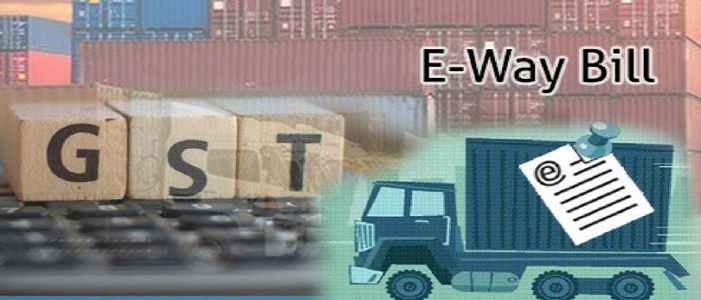As India gears up to prepare for the next leap in GST compliance – the e-Way Bill, it is time to find out how technology can simplify e-Way Bills for your business. The obvious question on your mind is, ‘Will e-Way bill impact my business?’

The answer is yes, by and large e-Way Bill will impact your business. Whether you run a big or a small business, are registered or not registered, e-Way Bill will be applicable to you in one way or the other. Since e-Way Bill is a GST compliance mechanism, you must become familiar with it.
What is an E-Way Bill?
E-way Bill stands for Electronic Way Bill. An E-Way Bill is generated by the person causing movement of goods in the e-Way Bill portal. It has to be generated for transporting goods worth more than INR 50,000 by any mode of transport.
The e-Way Bill is usually a unique bill number generated for the specific consignment. Any registered business, transporting goods in their own vehicle, hired vehicle, railways, by air or by vessel, the supplier or recipient of the goods should generate E-way bill.
Let the right technology manage e-Way Bills for you
Avoid repetitive activity
The details that are required to record a transaction and generate invoice are required for generating the corresponding e-Way Bill as well. Why would you want to spend time to re-enter all the details again in the e-Way portal? The software you use should help avoid this repetitive activity.
Flexibility
You must be able to record transactions in your software, and export the details together for the purpose of generating e-Way Bills in the portal. This must be possible the other way round as well, i.e., in situations where you have recorded transactions in the portal first to generate e-Way Bills.
Do you have to re-enter the details again in your software to record the transaction? No. The right software will let you switch between systems. From portal to your software, and vice versa.
It is not always possible to generate an e-Way Bill as soon as you have recorded a transaction. You might be supplying goods a few days later. Sometimes, your transporter might not be ready with the vehicle. You need flexibility to generate e-Way Bills any time. Ideally, you must be able to generate e-Way Bills while recording a transaction, or after recording the transaction. You must be able to generate e-Way Bill for a single invoice, or for multiple invoices together.
Ensure compliance
Depending on the nature of your business, you might be recording transactions for transporting goods frequently. How will you keep track of transactions of value more than Rs. 50,000 for which it is mandatory to generate e-Way Bills? Let your software do that for you. Imagine cases, where there are hundreds of transactions recorded.
Print invoices with e-Way Bill Nos.
In a fast-paced business environment, where you are paying money to transporters for moving your goods, time is valuable. Your software must let you print e-Way Bill Nos. on invoices in a short span of time. You can handover the prints to your transporter who needs to carry the documents while transporting goods for compliance purpose.
Manage exceptional cases
What if the vehicle in which your goods are being transported breaks down. You must be able to track the particular invoice quickly and easily in your software, and generate a fresh e-Way for the same from the portal.
Business situations can be unpredictable too. If your supplier is unable to generate an e-Way Bill, you must be able to do quickly. If you make purchases from unregistered dealers, you should be able to generate e-Way Bills on their behalf in your software.
Generate and print consolidated invoices
The commercial tax department allows invoices to be grouped based on mode of transport, vehicle nos., place of supply or State and generate a consolidated e-Way Bill to make life easy for the transporters.
Your software must firstly let you generate individual e-Way Bills for each invoice. It must let you group these invoices as per your preference and then generate a consolidated JSON file of the same which could be uploaded in the portal. The e-Way Bill portal will then generate a single e-Way Bill for the consolidated invoices.
About the Author
This article has been authored by Tejas Goenka, Executive Director, Tally Solutions

